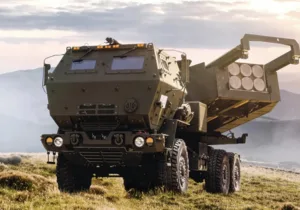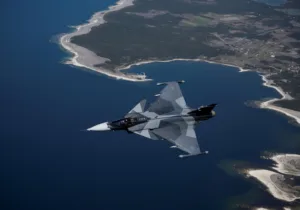In France, the internal troubles brought about by unpopular massive migrations have added to the political elites’ increasing dependence on the injections of popular support spawned by military operations. This dynamic has modified the relationship between civil society and its armies, leading to an increased role for military officers in the affairs of state. This rise of officers has reduced the civil-military gap. However, the French officers are not satisfied with a mere recognition of their technical qualities. They are clamoring for their legitimate return into the political arena.
A civil military gap?
The civil-military gap includes, or had included, several dimensions. First of all, there is a social gap between an officer corps that is culturally dominated by Roman Catholic aristocratic families attached to the defense of France and other parts of the public. These living remnants of a society which has partially disappeared—the Ancien Régime—now command soldiers who partially belong to France’s recent migrants. This combination forms a kind of colonial structure within France. Meanwhile, the civilian counterparts to these officers are the children of the generations promoted after World War II. A little bourgeoisie without roots and sense of history, suddenly promoted to the top level of political power. Second, there is an intellectual gap between a generation of officers who have broadly rejected the hollow readings proposed by France’s educational structure and instead have embraced their own romantic counter-culture. Third, there is a political gap between an officer corps, which has partially rejected the liberal profession of faith, and the high civil servants, who have pledged their existence to the defense of the liberal-democrat citadel, now under siege.
The failure of the dead elites
Everything had been carefully planned: in a world marked by the simultaneous progress of democracy and globalization, the military was headed for extinction in the short-term. Conflicts would progressively dissolve into the market, and high-level civil servants would soon enjoy a monopoly on thinking without being bothered by the interference of military officers whose brains, after all, lacked the capacity for complex thought—though the officers sometimes pretended otherwise, as if they could ever be anything more than mere technicians of war. Moreover, the bureaucratic management of officers had its advantages, insofar as it prevented the advance of those few officers who feigned an alternative vision of the world. Unfortunately for the technocrats, things did note quite turn out this way. The inevitable progress of democracy indeed proved to be an optical illusion. Globalization had come to a standstill, and individual identities suddenly re-emerged. In fact, the massive opening of national borders has spawned a genuine clash of identities and the inevitable return of war.
The question now is whether the civilian elites would be able to cope with the wars they had unleashed. Would those who had claimed a monopoly on intelligence be able to exert this intelligence to ensure peace? The answer is only too obvious. The elites failed dramatically because their technocratic training, based on legal procedures and financial management, had made them unable to grasp the world as it is, in its political and cultural dimensions. They failed dramatically because their ideology ran into reality.
Despite the protests of high-ranking officers, wars without purpose were waged. They ended up with military victories and political disasters. The soldiers had thus given their lives because of the unforgivable mistakes committed by ideologues or, even worse, by the cynical action of lobbyists pushing forward limited wars in order to sell their weapons at a smooth pace. In any case, the creative imagination necessary to overwhelm obstacles in times of troubles was by no means encouraged. This was, at least, very clear for the French military personnel who had in mind the famous book by Marc Bloch, The Strange Defeat (1940). This book describes how an army of older bureaucrats was suddenly defeated by a younger one which had retained individual initiative at the lowest level, and strangely enough had not decided to wage war according to the rules defined by the French war college.
Supreme technician becomes a Prince of war
As we know, an army of technicians is unable to understand political realities, especially when it is blinded by ideologues. During the last several years, foreign policies have dissolved into their own contradictions. In France, it became apparent to the military very quickly that a supreme technician occupied the top of the state. At the same time, countries that underwent evolutions different than France placed a Prince of war at the summit. Vladimir Putin is such a Prince. It also became clearly apparent to the military that, in times of unrest, the supreme technician was quickly overwhelmed by the Prince of war, especially when this competitor had a clear political vision of the world.
Lacking public support, the supreme technician had to sometimes dress as a Prince of war so as to regain his citizens’ confidence. In this respect, the Libyan campaign—despite its disastrous geopolitical consequences for North Africa and Europe—was very helpful for the private interest of President Sarkozy, whose popularity suddenly increased after the first airstrikes. President Hollande understood the lesson and benefited very much from the Serval Operation in Mali.
The problem, to the frustration of the elite, is that the ‘foolish military automatons’—even though confined to their alleged heart of expertise—had realized that these wars were being launched for public relations reasons. Military action had become a substitute to foreign policy, and diplomats had no plan. What should be done with Mali? Elections would be organized, the elite dreamt aloud, and would naturally solve all problems, as if by magic. What should be done in Syria? No elections this time, otherwise Bashar would immediately be re-elected. Magic could be elastic.
The return of the officers
The military disasters spawned by civilians’ inability to determine a foreign policy obviously raised questions among the military. Given that the civilians had failed, the military might be allowed to participate in the political debate. Some officers realized that their understanding of the world was by no means inferior to that of their civilian colleagues. In effect, the multiplication of military operations since the Afghan war had stimulated the officers’ wisdom. After all, what is wisdom if not competence with reality? On foreign operation theaters, the officers had grasped political and cultural realities which remained mysteries to the civilians locked in their conceptual islands.
During the previous decade, the relations between civilians and officers could have been compared to that which existed in France between 1715 and 1789. The armies of Louis XIV had been dramatically reduced between 1715 and 1723. The French army had lost 2/3 of its soldiers. It operated discreetly in foreign operation theaters and within coalitions so as to reduce the cost of war. Enlightened spirits bought mechanized nightingales, which were to sing divinely, and expected officers to behave as machines, robots.
But the comparison with the 18th century has now lost its meaning. War has come back, and the officers know that they might play a growing political role in the near future. A window has been opened, just wide enough to hear the song of the real nightingale. Some officers today suddenly have the idea that if they allied themselves with the courageous and creative elites, which the state bureaucracy has rejected, they could form an elite of substitution, and that this replacement would be accelerated by the growing internal troubles. The lessons of the first weeks of 1914 have not been forgotten: after a few days, a certain number of officers promoted by the peace bureaucracy had proven unable to command; instead, leaders emerged from nowhere. Let us now consider the end of the Roman third century. A time of financial collapse, social troubles, political disorder—with the apparition of splinter kingdoms in Syria and Gaul, a time of migrations and wars. What was the solution found by the Emperor to cope with increasing violence? A militarization of the administration: the Emperor relied on his officers’ situational intelligence in order to administrate his realm.
Weak signals indicating a new balance between civilians and officers
Let us consider four indicators of weak signals. First weak signal: the largest demonstrations in France since the Second World War mobilized two million people several times last year against gay marriage. The demonstrations were headed and organized by members of the military, including General Dary, who had retired the year before from the prestigious post of Military Governor of Paris. Second weak signal: the latest demonstration against the migrants of Calais was headed by the former head of the French legion: General Piquemal. Third weak signal: General Tauzin, former head of the French special forces, will be a candidate in the next presidential election. Fourth weak signal: the first book sold on Amazon France is entitled What Should Not be Said. This book gives an appalling picture of security in France. It has been written by General Soubelet, number three of the French Gendarmerie. He was fired earlier this month. The dead elites are so frail that they cannot bear contradiction. And, under the realm of lies, saying the truth becomes a provocation.
—
Thomas Flichy de La Neuville (Ph.D., University of Bordeaux) was appointed to the chair of international relations at the French Naval Academy in 2009. He is currently in charge of an international research program on successful strategies in times of crisis, in collaboration with the United States Naval Academy. Specialist of early modern diplomatic history, his latest works include Persian negotiation culture and Chinese strategies through the Jesuit looking glass (1582-1773).
Photo Credit: 114th Infantry in Paris on July 14, 1917. By León Gimpel via Wikimedia Commons.






 Sponsor a student for Christianity & National Security 2024
Sponsor a student for Christianity & National Security 2024